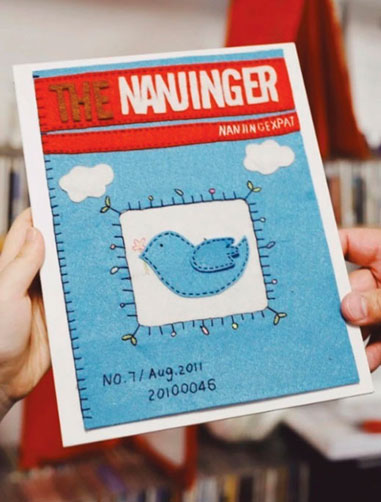The recent discovery of an unusual comic-book adaptation of the film Star Wars created shorty after the Cultural Revolution is testament to China’s isolation at the time. The booklet published in Guangzhou in 1980 tells the story of Luke Skywalker and Darth Vader, yet contains numerous scenes not included in the original film, leading to the conclusion that the author was recreating the story by using posters;without actually having seen the film.
This is unsurprising considering China had just emerged from a decade of chaos and destruction under the Cultural Revolution, during which Communist Red Guards attempted to destroy all un-sanctioned books (everything except Map propaganda) in an ideological war and an attempt to control the minds of the Chinese people. As a result, the country was almost entirely isolated from any outside artistic influence. The figures speak for themselves. In 1971, there were only 46 publishers nationwide, all of which belonged to the highest echelons of the communist party, as many intellectuals had been branded as class enemies. Bookstores had stopped selling books and libraries had stopped lending them, creating a complete literacy standstill throughout the nation. No films were produced throughout this time, instead there was a total of seven Chinese operas, which glorified the Communist regime and their leader Mao and were the only ones approved as “entertainment for the masses”.
Many previously famous writers had been denounced as capitalists and sent to prison. Upon being denied to write, the popular author Lao She even committed suicide by throwing himself into a river. During this period of time, even owning a foreign and/or non-sanctioned publication could lead to a person being subjected to severe beatings and worse if discovered amongst one’s possessions. Hence, the Star Wars booklet depicts much more than an American pop movie; it shows the author’s courage, as the dangers of replicating “capitalist propaganda” must have undoubtedly been deeply engrained in their mind.
At the same time, the act of importing this part of US culture evidences that as early as the 1980’s and despite Mao’s best efforts to demonize the West during the previous 30 years of his rule, there was a demand to consume “capitalist” media. Even throughout the Cultural Revolution, and under peril of losing one’s life, many a Chinese would illegally obtain banned publications, be they Chinese or English. In her autobiographical novel “Wild Swans” author Jung Chang describes how her brother would risk everything to purchase and sell books on the black market, while she herself would tear the cover off of illegal publications and replace them with a Mao-sanctioned cover to hide them from the authorities; her care saved her from detection and possible death when her house was raided by Red Guards.
To everyone’s relief the cultural revolution did not last; after ten years of chaos it finally ended in 1976 and with Mao’s demise in 1979, followed by Deng Xiaoping’s ascension, the country slowly began the march towards a more culturally open decade. What stands out from this dark tale of oppression are those courageous individuals who did not give up what they loved most, and went on reading or importing forbidden culture, even if it cost them dearly.










